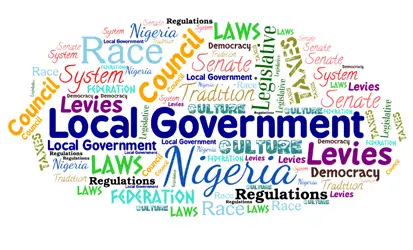LG: Functions, Structure, Numbers, and Effects of its Autonomy

Did you know that among the 774 LGAs in Nigeria, Bayelsa state has the lowest number while Kano state has the highest, and that it is believed the granting of autonomy to the Local Govenment will lead to more service delivery at the grassroots?
In Nigeria, the governing system is structured into three tiers: federal (central), state, and local government. However, the local government which play a vital role in the country’s democratic system has been redundant as they have been under the influence of the state government of their respective states.
LG are tasked with delivering basic services and governance at the grassroots level, ensuring that the needs of local communities are met. Local governments are also responsible for implementing development projects and programs within their respective local government areas (LGAs), which are the primary administrative divisions of Nigeria.
Their specific functions and responsibilities as mandated by the Nigerian constitution include: providing economic recommendations to the State, collection of taxes and fees, establishment and maintenance of cemeteries, burial grounds and homes for the destitute or infirm; licensing of bicycles, trucks (other than mechanically propelled trucks), canoes, wheelbarrows and carts; establishment, maintenance and regulation of markets, motor parks and public conveniences; construction and maintenance of roads, streets, drainages and other public highways, parks, and open spaces.
Others include naming of roads and streets and numbering of houses within their local government areas, provision and maintenance of public transportation and refuse disposal systems, registration of births, deaths and marriages in their locality; assessment of privately owned houses or tenements for the purpose of levying such rates as may be prescribed by the House of Assembly of a State, control and regulation of outdoor advertising, movement and keeping of pets of all descriptions, shops and kiosks, restaurants and other places for sale of food to the public, and laundries.
In Nigeria, each LGA is divided into wards, with each ward being represented by a councillor who advocates for the interests of the local community. The composition of local governments in Nigeria includes elected officials who are responsible for the administration of their respective local government areas.
The key elected officials within local governments include: Chairman / Chairperson who is the head of the local government that oversees the overall administration and governance of the LGA; Councillors who are representatives of the wards within the local government and that advocate for the interests of their constituents; and Vice Chairman / Vice Chairperson that supports the chairman in their duties and responsibilities.
These elected officials work together to ensure the efficient and effective functioning of the local government administration in Nigeria. They collaborate with various stakeholders, including government agencies, community leaders, and residents, to address local issues and promote development.
The number of LGAs in each state varies based on factors such as population size and geographic area. For example, Lagos State, which is the most populous state in Nigeria has 20 LGAs, while Kano State has 44 LGAs. The distribution of local governments across the country is aimed at ensuring effective governance and service delivery to all regions.
Here is a list of the State and the number of LGAs in alphabetical order: Abia (17), Adamawa (21), Akwa Ibom (31), Anambra (21), Bauchi (20), Bayelsa (8), Benue (22), Borno (27), Cross River (18), Delta (25), Ebonyi (13), Enugu (17), Edo (18), Ekiti (16), Gombe (11), Imo (27), Jigawa (27), Kaduna (23), Kano (44), Katsina (34), Kebbi (21), Kogi (21), Kwara (16), Lagos (20), Nasarawa (13), Niger (25), Ogun (20), Ondo (18), Osun (30), Oyo (33), Plateau (17), Rivers (23), Sokoto (23), Taraba (16), Yobe (17), Zamfara (14), and FCT Abuja (6).
The granting of full autonomy to local government will yield tremendous benefits such as it will put an end to the unlawful practice of appointing loyalists or stooges to local government positions by state governors, as well as prohibit governors from unlawfully dissolving democratically elected local government councils; it will also reduce the burden on federal and state governments by allowing them to focus on broader policy issues, while it gives LG the power to govern and make decisions independently which can lead to efficient service delivery, foster transparency and accountability. In the long run it will strengthen democratic institutions by ensuring a more equitable distribution of power and resources.
By decentralizing governance and bringing it closer to the people, local governments help promote citizen participation and empowerment. The LG are instrumental in ensuring that government initiatives are effectively implemented and that resources are allocated equitably to benefit all Nigerians. Local government councils in Nigeria are essential in driving socio-economic development and improving the overall well-being of communities.


_1755775186.jpg)
